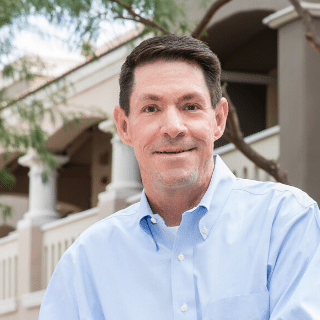Apple Store Best Practices; Near Miss 9/11; Entrepreneurs’ Manifesto; ZogSports
September 24, 2015EthoSolar’s Brutal Facts; Talking to Crazy; Top 40 Best Advice; Forbes 400 Youngest Billionaire
October 1, 2015How a Solar Company Climbed off the Cliff’s Edge and Found New Ways to Scale
By facing the “brutal facts,” a fast-growing team was able to anticipate challenges and pivot when necessary.
EthoSolar, a fast-growing commercial and residential solar developer, had a sticky situation to resolve. The company, based in Worcester, Mass., and three cities in Canada, had retained an outside group to perform some sales functions. That group had asked EthoSolar to change the way it marketed its offers to customers.
“The change made the offer to our customers look more attractive but it wasn’t consistent with being honorable, one of our core values,” says Ethan DeSota, senior manager of marketing, who was on the founding team when the company launched in 2009. EthoSolar said no to the arrangement.
EthoSolar’s willingness to face the brutal facts in situations like this, to borrow a phrase from Jim Collins, has become a differentiating factor, as the company has scaled to $20 million in revenue in fiscal 2015.
It reflects the company’s work with Les Rubenovitch, a Gazelles certified international coach based in Toronto, for the past year. EthoSolar began working with Rubenovitch during a period of rapid growth. The firm doubled in size from about 19 employees in 2013 to 50 in 2014. “It seemed to be a whole different game at that level,” says DeSota.
Using the Scaling Up system for growing a company, Rubenovitch helped EthoSolar build enough trust among team members to have the frank discussions they needed as the company grew and to let constructive debate rage inside the company and meetings. That, in turn, has helped Ethosolar better foresee challenges and change direction when necessary.
Regular Meetings
One crucial first step in the coaching was to show EthoSolar how to build regular meeting rhythms—incorporating daily, weekly, monthly, quarterly and annual meetings. EthoSolar needed help converting the company’s goals and priorities to day-to-day, actionable steps understood throughout the whole organization. The meetings provided a place to do that. “This was a place to talk to each other about opportunities, and they all got addressed,” says Rubenovitch. “Before it was frequently ‘react’ mode.”
Constructive Debate
To be able to have the discussions needed, the leadership team had to tinker with the company’s culture a bit. “We were a very polite organization,” says DeSota. “Sometimes polite can border on so polite that we don’t really raise our hands.”
As Rubenovitch saw it, “They had a tendency to misinterpret being respectful of each other as not challenging. Being respectful means sharing what you think so everyone can change and grow.”
As the company’s leadership team and employees came to understand that, frank discussions got easier. “We got into a very high visibility level: ‘Let’s talk about the brutal facts,’” says Rubenovitch. “Then it became increasingly comfortable.”
Getting clear the company’s core values — being honorable, accountable, hopeful, kind and driven — made the change less painful. The team could more easily evaluate key strategic moves by looking at whether they supported the core values.
Pivoting into New Markets
The work the company did paid off in recent months, when the company found itself “on the cliff’s edge,” as DeSota put it. EthoSolar had gone after a project that could add $60 million to the firm’s revenue, completing reams of paperwork to go after the job. Then a question arose about whether government subsidies for the project would actually continue or be postponed for two years.
“All of a sudden we are looking at a revenue situation where we may experience a $60 million gap,” DeSota says.
Communicating in the more direct way they learned from Rubenovitch, the company’s leadership team devised a new strategy to insulate itself from future ups and downs like this. “For us, it’s been a wakeup call,” says DeSota. “We had a conversation at our last planning session about whether we were a company or a government agency. It drove planning directly around `How do we scale and move out of solar business that is dependent on government incentives?’”
The company’s ability to react quickly energized the entire team. “We are actually moving in a couple of directions right now that take us out of the need for government incentives to create a market for us, where we depend on normal market forces,” DeSota says. “That’s going to be wonderful for us long term. It also means breaking through some ceilings we have to get through as a company.”
The company has recently made some key hires needed to make the transition to new markets. “We believe they are going to get fantastic results,” says DeSota.
DeSota believes that if the company’s leaders had not worked with Rubenovitch, they would not have had the skills to pivot so quickly in a new direction. “This is where the coaching has been essential,” says DeSota. And in a sign that portends well for the future, Rubenovitch found the leaders and middle managers he worked with to be quick to implement the Scaling Up system. “They rank right up there in terms of being open, receptive and eager to learn, grow and change,” he says.



